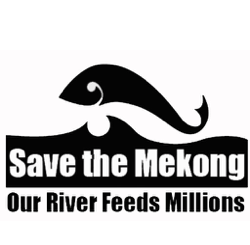
SIGN THE UNIVERSAL DECLARATION ON THE RIGHTS OF RIVERS
To: Government officials at the municipal, state, provincial, and national level
We, the undersigned, urge you to stand with a growing international movement to protect rivers, freshwater ecosystems, and all who depend upon them for their lives and livelihoods.
You can do so by seeing to the adoption of the Universal Declaration of the Rights of Rivers in your country’s laws and ensuring its adoption results in the vital protections it guarantees.
Given the alarming degradation of rivers globally and the resulting harms to the climate, wildlife, public health, and local economies, we urge you to act without delay.
The declaration states that all rivers are:
Living entities.
Entitled to fundamental rights.
Entitled to legal guardians.
And that:
These rights shall extend to the health of watersheds and river basins.
Indigenous communities will be represented in river guardianship.
All states will implement these rights and provide the resources necessary to ensure they are realized.
More than 100 organizations from more than 20 countries have so far endorsed The Declaration.
ADD YOUR NAME
We will never sell or swap your personal information with anyone else. We will only share your contact info with the organizations of your choosing if you give us permission to do so. Read more about how we use your information at RightsOfRivers.org/Privacy
SHARE
ENDORSE AS AN ORGANIZATION
CONVENING ORGANIZATIONS
ENDORSING ORGANIZATIONS
AEMS-Ríos con Vida
Aguarajà
Al-Farabi Kazakh National University
“Amici del torrente Alberone” Committee
Animals Are Sentient Beings, Inc.
Asociación Ambiental E Cultrual Petón Do Lobo
Association of Friends of Ina and Gowienica Rivers
Bulat Yessekin GWP Central Asia, Mongolia and Caucasus
Centar za zivotnu sredinu/Center for Environment
Center for Support of Indigenous Peoples of the North
COMITÊ DE DEFESA DA VIDA AMAZONICA NA BACIA DO RIO MADEIRA
Curator, Water Literacy
Dodder Action
Earth Thrive
Eco-TIRAS International Association of River Keepers
Ecological Center Dront Eurasian National University
Ethnos
Fight C
Foundation for Conservation of Nigerian Rivers
Fundacion Plantae
Friends of the Baltic non-profit Environmental Organization
Friends of the Siberian Forests - Russia
Global Pact Coalition
GWP Central Asia, Mongolia and Caucasus
Huerto Roma Verde
Initiative for Climate Action
IRIKEFE V. Dafe, Foundation for Conservation of Nigerian Rivers
Kiva Kumbha Mela 2019
Lagan Rivers Trust
Litigio Estratégico Indígena
Mekong Kayaks
Naciones Unidas del Espíritu
NGO "Kyubeye", Yakutia
Olga Senova, Friends of the Baltic non-profit environmental organization, Russia, Baltic Sea basin
Organizatorom to Save nature"Samokov"
Pachamama Alliance
People and Nature Reconciliation
Plataforma de Toledo en Defensa del Tajo
Project Lake Baikal Expedition
Rak Chiang Kong Group
Rights of Nature Sweden
riverbangla
RiverWatch
Sacred Sea
Save the Colorado: Colorado River Waterkeeper Network
Scientists4Mekong
Survivors of Lesotho Dams
Synchronicity Earth
The Gaia Foundation
Union for Defence of the Aral Sea and Amudarya
Wolne Rzeki
Yarra Riverkeeper Association
Спиридонова Людмила Михайловна
African Biodiversity Network (ABN)
Amigos E Amigas Dos Bosques “O Ouriol Do Anllóns”
Aqua Happiness
Asociación Galega Cova Crea
BE.TIME Andalusian Non-Profit Cooperative Society
Black
Biodiversity Conservation Center
Bomenridders Groningen
Carlos Zorrilla DECOIN Defensa y Conservación Ecológica de Intag
Center for Creative Ecologies
Chile Sustentable
Comitato Terre S.Giovanni
Consejo de Visiones
Department of Sociology and Social Policy, The University of Sydney
Earth Advocacy Youth
EarthLore - South Africa and Zimbabwe
Ecoaldea Huehuecoyotl
Ecological Initiative BURENCO-plus
Endangerd Habitats League
Evgeny Orlov, IKC Strix, Nizny Novgorod, RF
Forum Diritti Natura
Foundation of Sami heritage and Development
Friends of the Gatineau River
Frontera Water Protection Alliance
GRABE-Benin - Benin
Halda River Conservation Committee
Jamessira Centre for Development
Id•eau, imagination durable pour l’eau douce
Itelmen Inigenous Community
La casa de la Ixtli
Lawyers for Nature
Legambiente Piacenza
Lo INSTITUTO MADEIRA VIVO-IMV
Lynn Canal Conservation
Mexican Institute of Water Technology
Movement for Ecological Learning and Community Action (MELCA) - Ethiopia
Nature's Rights
Notre Affaire à Tous
Orca Network
OT Watch
Pacto Mundial Consciente
Planet Politics Institute
Project Maje
Poets for the Peace
Public movement in defense of the Volga river "Let's help the river"
RAVEN
River Collective
Rio Grande Restoration
Rivers without Boundaries International Coalition
Rotary International
Sakhalin Environment Watch
Save the Tigris Campaign
Snoqualmie Community Action Network
Society for Alternative Learning and Transformation (SALT) - Kenya
The Organizing Committee of the Animal Protection party
USArchive & Imaging Services, Inc.
Youth and Environment Europe
Yurok Tribe
African Institute for Culture and Ecology (AFRICE) - Uganda
ANAI
Arctic Consult - Norway
Arts In Color
Asociación Quisca
Bluetooth
Bufete para Pueblos Indígenas
Bios Argentina
Cartagena Araoz
Center for Cultural Heritage of Indigenous Peoples of the North
Circolo Legambiente Gli Amici del Lago
Colectivo Mura De Porto Velho
Convener, National River Conservation Movement, BAPA
Derechos de la Madre Tierra México
Earth Law Center
EarthRights International
EcoBirth-Women for Earth and Birth
Equipo de Trabajo por Derechos Colectivos
Familia Vrinda
Forum For Better Bapatla
Freshwater Life
Friends of the Siberian Forests
GegenStroemung – CounterCurrent / INFOE e. V.
GTANW
Huaynakana Kamatahuara kana - The Federation of Indigenous Kukama Women of the Samiria and Marañón Rivers
International Indigenous Fund for Development and Solidarity "Batani"
Kazakhstan Farmer Foundation
La Red Pantanal
Lipetsk Socio-ecological UnionВалерий Королев
Local Association of Public Associations of Indigenous Minorities of the North of the Taimyr Dolgan-Nenets Municipal District of Russia
Movement Rights
Network of Thai Mekong People in 8 provinces
Nepal Water Conservation Foundation
O Ouriol do Anllóns
Open-Source
Organi-k
P C Sai Babu, Forum For Better Bapatla
Peace Valley Landowner Association
Plastiki
Presentation Sisters NL
Pure Inspirations
Renacimiento Mexicano
River Ethiope Trust Foundation
Riverine People
Rivers without Boundaries Mongolia
Russian Social-Ecological Union / Friends of the Earth Russia
Salviamo il Paesaggio Valdossola
Save the coastalpeople- SCOPE
Save the Zambezi
Stichting Rechten van de Natuur
Tajik Social and Ecological Union
The Spokane Ecosocialist
Watershed Watch Salmon Society
Water Justice - Justicia Hídrica Alliance
Валерий Королев, Липецкий социально-экологический союз
THE UNIVERSAL DECLARATION ON THE RIGHTS OF RIVERS
PREAMBLE
ACKNOWLEDGING that rivers are essential to all life by supporting a wondrous diversity of species and ecosystems, feeding wetlands and other aquatic habitats with abundant water, delivering life-giving nutrients to coastal estuaries and the oceans, carrying sediments to river deltas teeming with life, and performing other essential ecological functions,
AWARE that rivers also play a vital role in the functioning of Earth’s hydrologic cycle, and that the viability of rivers to play this role depends on numerous factors, including the maintenance of surrounding river catchments, floodplains, and wetlands,
RECOGNIZING the absolute dependence of people on rivers and water-based systems, which support human life by providing us with clean and bountiful water for drinking and sanitation, fertile soil, food sources for billions of people, recreation, cultural uses, and nourishment of the human spirit, as they have done since the beginning of human civilization,
ALARMED that humans have caused the significant pollution of rivers worldwide, including with organic matter from wastewater and sewage, plastic waste, pathogens and nutrients from agriculture, and contaminants from industry, in addition to many other forms and sources of pollution, with resulting declines in aquatic health and biodiversity, as well as extensive negative human health impacts,
CONCERNED that excessive waterway diversions and groundwater withdrawals have significantly reduced flows in rivers worldwide, with many waterways now running completely dry, despite scientific consensus that adequate flows are fundamental to the survival of river ecosystems and serve as the lifeblood of many river-dependent freshwater and riparian ecosystems,
FURTHER concerned that humans have caused widescale physical changes to rivers through dams and other infrastructure, which includes the construction of over 57,000 large dams worldwide that impact over two-thirds of all rivers, resulting in fragmented habitats, reduced biodiversity, imperiled fish populations, exacerbated climate change, and retained sediment and nutrients that are fundamental to downstream ecosystem health,
FINDING that national and international laws pertaining to waterways are vastly inadequate to protect the integral health of rivers and river basins alike, and that these laws also fail to ensure current and future generations of humans and other species as well as ecosystems with adequate supplies of clean water to meet their basic needs,
AWARE that all people, including indigenous communities and other local communities of all spiritual faiths, have long held through their traditions, religions, customs, and laws that nature (often called “Mother Earth”) is a rights-bearing entity, and that rivers in particular are sacred entities possessing their own fundamental rights,
COGNIZANT that the degradation and exploitation of rivers is not only an environmental issue, but also a rights concern for indigenous peoples and other local communities, as the destruction of rivers threatens the very existence and way of life of those who rely upon river systems for their well-being,
GUIDED by the growing number of governments worldwide that seek to reverse the ongoing trend of global environmental degradation by recognizing and enforcing nature’s inherent rights, including through a constitutional amendment in Ecuador (1), two national laws in the Plurinational State of Bolivia (2) and Uganda (3), numerous state constitutional amendments in Mexico (4), and dozens of rights of nature ordinances in the United States (5) and Brazil (6),
FURTHER GUIDED by the growing legal recognition of the inherent rights of rivers, including through a New Zealand treaty recognizing the Whanganui River (or “Te Awa Tupua”) as “an indivisible and living whole” and “a legal person,” with appointed guardians to represent the River’s interests (7); a Colombia Constitutional Court decision ruling that the Atrato River basin possesses rights to “protection, conservation, maintenance, and restoration” and other court rulings throughout Colombia establishing the rights of rivers and river basins (8); several resolutions passed by Native Americans, including a Nez Perce General Council resolution recognizing the rights of the Snake River to exist, flourish, evolve, flow, regenerate, and to restoration (9), and a Yurok Tribe resolution recognizing the rights of the Klamath River to exist, flourish, and naturally evolve free from pollutants and contamination (10); a Bangladesh High Court ruling that all rivers have legal rights (11); and an Ecuadorian Provincial Court ruling enforcing the constitutional rights of the Vilcabamba River and calling for its remediation and rehabilitation (12),
CONVINCED that recognizing the rights of nature, and in particular recognizing those river rights contained in this Declaration, will foster the creation of a new legal and social paradigm based on living in harmony with nature and respecting both the rights of nature and human rights, particularly with reference to the urgent needs of indigenous communities and the ecosystems they have long protected.
1.
Declares that ALL RIVERS ARE ENTITLED TO THE FUNDAMENTAL RIGHTS set forth in this Declaration, which arise from their very existence on our shared planet
2.
Further declares that all rivers are LIVING ENTITIES that possess legal standing in a court of law
3.
Establishes that all rivers shall possess, at minimum, the following FUNDAMENTAL RIGHTS:
THE RIGHT TO FLOW (13),
THE RIGHT TO PERFORM ESSENTIAL FUNCTIONS WITHIN ITS ECOSYSTEM (14),
THE RIGHT TO BE FREE FROM POLLUTION,
THE RIGHT TO FEED AND BE FED BY SUSTAINABLE AQUIFERS,
THE RIGHT TO NATIVE BIODIVERSITY, AND
THE RIGHT TO REGENERATION AND RESTORATION
4.
Further establishes that these rights are intended not only to ensure the health of rivers, but also THE HEALTH OF WATERSHEDS AND RIVER BASINS of which rivers are a part, as well as the health of all ecosystems and natural beings therein, all of which possess, at minimum, the fundamental rights to exist, thrive, and evolve
5.
Maintains that in order to ensure full implementation and enforcement of these rights, each river shall be entitled to the independent appointment of one or more legal guardians that acts solely ON BEHALF OF THE RIVER’S RIGHTS and who may represent the river in any legal proceeding or before any governmental body empowered to affect it, with at least one legal guardian being an INDIGENOUS REPRESENTATIVE for those rivers upon which indigenous communities traditionally depend
6.
Determines that rivers shall have THEIR BEST INTERESTS, as determined by their legal guardians, assessed and taken into account by both government and private entities in all actions or decisions that concern such rivers
7.
Resolves that all states shall implement these rights in full within a reasonable amount of time, including by developing and acting upon AN INTEGRATED ASSESSMENT of watershed health according to the most recent scientific understandings and in partnership with all stakeholders
8.
Strongly urges all governments to ensure prompt and adequate financial mechanisms to realize these FUNDAMENTAL RIVER RIGHTS, including the right of all rivers to restoration
9.
Asserts that governments shall consider for decommission all dams that lack a compelling social and ecological purpose, and that new dam construction shall only occur when necessary to achieve a compelling social and ecological purpose that cannot be met by other reasonable means, with the FULL FREE, PRIOR, AND INFORMED CONSENT OF IMPACTED INDIGENOUS PEOPLES AND COMMUNITIES. Where necessary, dams and other water infrastructure shall utilize the best available technologies by which to preserve ecosystem health. In the longer term, society shall find dam alternatives that allow for free-flowing watershed corridors and incrementally progress towards a dam-free world in a manner that is respectful of the rights of those human and nonhuman communities that have adapted to the status quo.
In the longer term, society shall find dam alternatives that allow for free-flowing watershed corridors and incrementally progress towards a dam-free world in a manner that is respectful of the rights of those human and nonhuman communities that have adapted to the status quo.
Footnotes:
Republic of Ecuador, Constitution of 2008, Arts. 10, 71, 72, 73, and 74.
Bolivia, Law of the Rights of Mother Earth, Law 071 (2010); Bolivia, Framework Law of Mother Earth and Integral Development for Living Well, Law 300 (2012).
Uganda, National Environmental Act (2019).
Constitución Política del Estado Libre y Soberano de Guerrero (2016); Constitución Política de la Ciudad de México (2017); Constitución Política del Estado Libre y Soberano de Colima (2019).
See e.g. Ordinance No. 612 of 2006, Tamaqua Borough, Schuylkill County, Pennsylvania (2006); Ordinance of the City Council of Santa Monica Establishing Sustainability Rights § 4.75.040(b) (2013).
See e.g. Amendment to the Organic Law 7/2018 of 16/05/2018, São Paulo City Council (2018); Amendment to Organic Law No. 03, of 5 January 2018, Paudalho City Council (2018).
Te Awa Tupua (Whanganui River Claims Settlement) Bill (2017).
Acción de tutela interpuesta por el Centro de Estudios para la Justicia Social “Tierra Digna” contra la Presidencia de la República y otros, República de Colombia, Corte Constitucional, Expediente T-5.016.242 (Nov. 10, 2016). See also the Plata River (2019, Colombian Municipal Civil Court of La Plata); three rivers in Tolima including the Coello, Combeima, and Cocora (2019, Administrative Tribunal Court of Tolima); the Cauca River Basin (2019, Superior Court of Medellín); the Pance River Basin (2019, Third Court of Enforcement of Sentences and Security Measures of Cali); and the River Otún (2019, Fourth Penal Enforcement Court of Pereira).
Nez Perce General Council, SPGC20-02, Resolution Establishing the Rights of the Snake River (June 18-20, 2020).
Yurok Tribal Council, Resolution Establishing the Rights of the Klamath River (May 9, 2019).
High Court of Bangladesh (2019) (establishing the Turag River as a living being and legal person, then extending this legal status to all rivers).
Provincial Court of Justice of Loja, Sentence No. 11121-2011-0010 (March 30, 2011).
Flows must, at minimum, follow natural flow patterns and be sufficient in quantity to maintain the ecosystem health of the entire river system.
These include maintaining horizontal and longitudinal connectivity, flooding, moving and depositing sediment, recharging groundwater, providing adequate habitat for native flora and fauna, and other essential functions.
Photo Captions:
MANAWATU-WANGANUI, NEW ZEALAND. Manawutu George Track. Photo courtesy of Ryan Clark (Unsplash).
BANGLADESH. Two boats float on the Dharla River. Photo courtesy of Asif Rahman (Unsplash).
CHILE. Community nestled along river in Chile. Photo courtesy of International Rivers.
Two women in canoes filled with flowers. Photo courtesy of Quang Nguyen Vinh (Pexels).
Watercrafts on River. Photo courtesy of Jeremy Bishop.
Indus River Celebration. Photo courtesy of International Rivers.
Sunset on the Zambezi River. Photo courtesy of International Rivers.
ETHIOPIA. Blue Nile Waterfalls. Photo courtesy of Daniele Levis Pelusi (Unsplash).
Organizer protests dam development project. Photo courtesy of International Rivers.
PUBLICATIONS
TRANSLATIONS
NEWS
'Dramatic' global rise in laws defending rights of nature (Reuters)
Saving the Whanganui: Can personhood rescue a river (The Guardian)
Rights of Rivers rapidly gains steam (The Green Times)
More nations pledge laws to protect the environment (The Christian Science Monitor)
‘Dramatic’ global rise in laws defending rights of nature (The National News)
Opinion: Time to recognise and respect rivers’ legal rights (The Third Poll)














